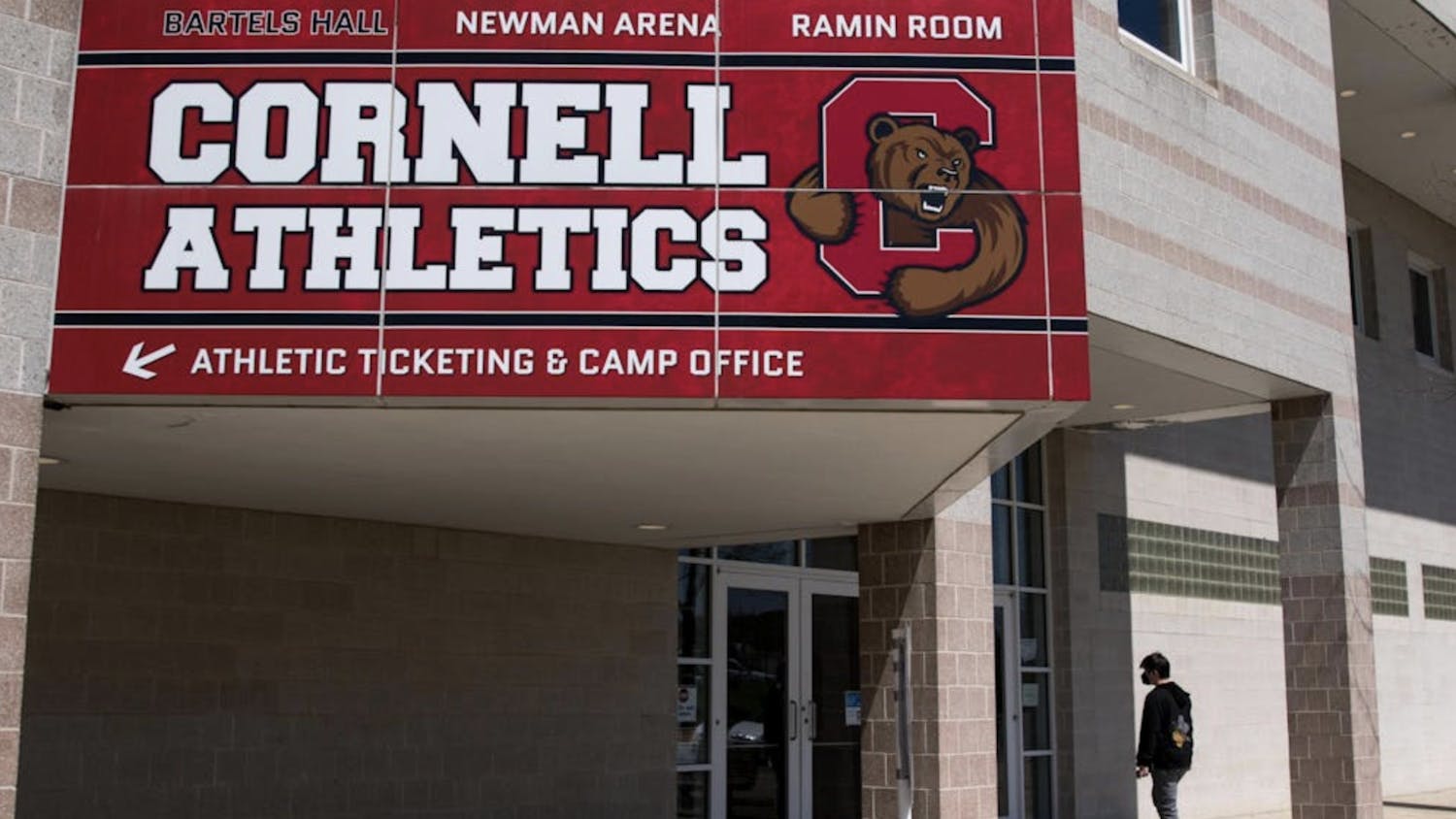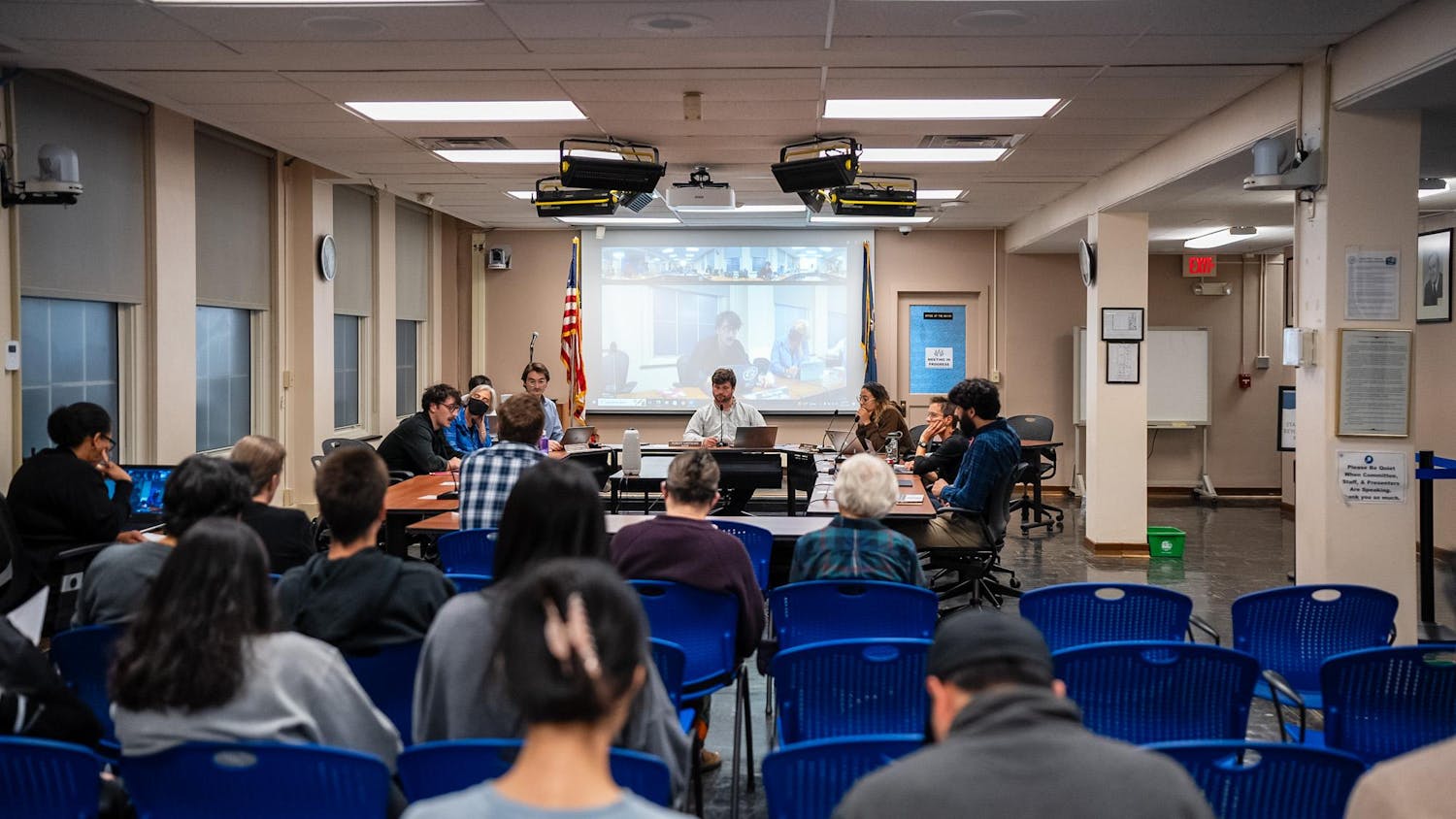In an auditorium filled to the brim with students, faculty and administrators, the Faculty Senate Committee met yesterday to discuss Cornell’s state in the recent financial downturn. After Provost Kent Fuchs discussed Cornell’s reaction to the economic crisis, Prof. Abby Cohn, linguistics, introduced a resolution to pause construction of Milstein Hall, the proposed new building for the College of Architecture, Art and Planning that has been in the works for over a decade. “This resolution is neither for nor against Milstein Hall, but is about the process and decisions made during these difficult [financial] times,” Cohn said. The motion called upon President David Skorton to include Milstein Hall in the University’s construction pause. Additionally, it demanded that Skorton, the Capital Funding and Priorities Committee and the Board of Trustees utilize the pause as an opportunity for careful review and reevaluation of Milstein Hall. The motion hoped to ensure that Milstein Hall “addresses the current and future programmatic needs of AAP, while balancing the financial constraints and sustainability objectives of the University as a whole.” However, Milstein Hall is actually included in the capital projects that will be affected by the construction pause rendering the proposed motion invalid, according to Stephen Golding, executive vice president for finance and administration, in his letter to the editor. Still speaking in opposition to the original motion, Kent Kleinman, academic dean of AAP, expressed the necessity of Milstein Hall for the college. “For the last decade, AAP has suffered with debilitating facilities and has anticipated this building. The urgency of building this is real for us. We are in extreme danger of losing accreditation if our facility’s needs are not met. Anything less than a new structure is a risky course to engage here,” Kleinman said. Despite the fact that, if approved, construction of Milstein Hall will force the University to pay for it out of pocket, Kleinman appealed to the Faculty Senate Committee “not to let the fiscal problems affect the excellence of the university.” Eric Cheyfitz, director of the American Indian Program and Professor of American Studies and Humane Letters, wondered why building Milstein Hall as planned, versus refurbishing the college’s existing buildings, is essential to the college’s accreditation. “This is a key question that needs to be answered before I can vote on the motion,” Cheyfitz said. In response to critics of Milstein Hall’s sustainability, Kleinman promised to work so that Milstein Hall would meet the highest LEED certification possible for the site and explained that LEED is not the only valid measure of sustainability. Kleinman concluded his plea by reporting that 18 out of the 23 architecture faculty members have agreed to Milstein Hall’s current construction plan because “they love their students.” He noted that this is rarity, considering architects rarely agree with each other. Peter Stein, physics and nuclear studies, asked if the Faculty Senate Committee would consider an alternative motion distributed to members of the faculty Tuesday afternoon. This motion asks President Skorton and the University trustees to assume a new policy that mandates a plan for publishing building plans to the campus community prior to construction and for “securing the full funding of the construction and operation of each building before the construction begins.” The motion also requests that Skorton and the University trustees delay the construction of ongoing projects that do not yet have full funding until a plan for their complete financing is set.[img_assist|nid=35042|title=Milstein Graphic: Pros and Cons|desc=|link=node|align=left|width=|height=0] Last, the motion, written by six faculty senate members, demanded that strict standards for energy efficiency in the construction of new buildings and renovations of buildings be enforced. However, according to a committee bi-law, motions must be delivered to senators one week in advance of discussion. Stern suggested an emergency meeting for next Wednesday to discuss a second motion that was written in light of Golding’s letter to The Sun. Due to specific bylaws governing the Faculty Senate, the participants at the meeting were unable to examine the second resolution. A motion was made to hold a special meeting to present the second motion, but it ultimately failed, pushing the issue until next month’s meeting. The new resolution reads: “consistent with the announced construction pause, we call upon President Skorton and the University Trustees to evaluate the financial status of ongoing construction projects, and if a plan for the full funding of a project has not yet been established, to delay the construction timetable until an acceptable plan for full financing is in place.” Fuchs could not promise that no actions would be taken to approve Milstein for construction before the Faculty Senate had a chance to hear the proposal. Prof. Shelley Feldman, sociology and director of the Feminist Gender Sexuality Studies, stood up in favor of both resolutions. “ I think these are crucial issues during crisis times and normal times. Are we committed to as sustainable campus?” she said, adding that she was also concerned with the University’s decision to finance some of the building with debt. Richard Talman, physics and a participant at the meeting, said that in the specific case of Milstein Hall, it is essential that the faculty trust the administration. “I don’t believe that the faculty is especially more qualified than the administration and in these crucial times the faculty must exercise solidarity with the administration,” Talman said.
Faculty Debates Milstein Merits
Reading time: about 5 minutes
Read More










